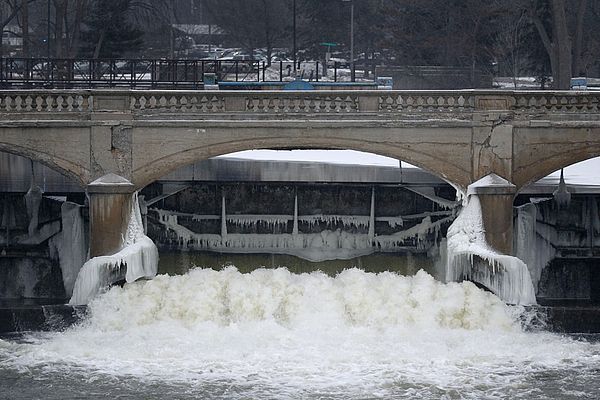We take clean drinking water for granted, but recent problems in Flint, Michigan are a reminder of how precious it really is. It has only been about 100 years that we could trust the water coming from taps to not make us sick, a threat many parts of the world still face. It took steady investment from our parents and grandparents to get us to the point where we can trust tap water, but we are failing to maintain those investments.
Lead pipes, the bane of Flint, harken back to Ancient Rome. The first aquaducts were made from lead, a soft malleable metal which is easy to work and waterproof. Lead was so important to water that the word ‘plumbing’ comes from the Latin word for lead, plumbum. Unfortunately, lead is toxic, particularly for developing brains.
It wasn’t until the late 1980s that federal actions barred lead in pipes. Section 1417 of the Safe Drinking Water Act (SDWA) prohibits the “use of any pipe, any pipe or plumbing fitting or fixture, any solder, or any flux, after June 1986, in the installation or repair of (i) any public water system; or (ii) any plumbing in a residential or non-residential facility providing water for human consumption, that is not lead free.”
Over time old lead pipes have been replaced but it a long expensive process. Cities take responsibility for their delivery lines, but not everything can be done at once. For example, in Rochester, NY 23,000 out of 60,000 service lines are lead or have lead components even today. Pipes within homes and apartment buildings are the responsibility of the property owner, and that’s usually where problems arise.
The Flint problem came about when the city switched its water source, but didn’t take proper measures to prevent corrosion from lead pipes. The state environmental agency argued that corrosion prevention was not necessary, and requested a legal opinion from the federal government. EPA was slow in pushing the state to adopt corrosion practices.
The Flint situation has led to partisan outcry and blame shifting. Conservatives blame EPA for not being forceful enough (after spending years trying to reign in EPA’s authority), while liberals point fingers at Michigan's Republican governor and his appointees. To the extent that such sniping leads to further distrust in government, we miss the main lesson from Flint. Government created the water infrastructure that we now take for granted and government has a responsibility to maintain it.
Our society needs to reinvest in our public infrastructure, and not just water infrastructure. Roads and bridges are crumbling and our pipes for both sewer and drinking water are out of date and falling apart. Rebuilding infrastructure provides a public service that needs to be funded by government. Yet our political debate inevitably revolves around cutting taxes rather than looking at what taxes can achieve in terms of public investment.
One irony of the Flint situation is that residents of the city paid more for their water than anywhere else in the country. According to Politico, the city turned to water and sewer fees to raise money for the general fund in part to avoid tax increases. Michigan law actually prevents local governments from raising property or income taxes and the state slashed the revenue it shared with municipalities, leaving fees as the only revenue source. This in a city where 40% of the residents live in poverty.
In addition to meeting the needs of a modern society, public investment in infrastructure creates jobs. The Brookings Institute estimated 11 percent of the U.S. workforce was employed in infrastructure related jobs. The February unemployment report for the country indicated there are currently 7.8 million unemployed and looking for work, 6.0 million under employed, and another 1.8 million who would like to work but have given up looking. Many infrastructure jobs have low barriers to entry; you can get a job with a High School diploma. Not everyone is cut out for college, but everyone needs gainful employment.
"American infrastructure once used to be the envy of the world and a major source of Americans’ improved living standards. But in an era of government-bashing, it has been allowed to crumble, risking health, safety, and economic success," wrote Jacob Hacker and Paul Pierson in a recent article for The Atlantic. Flint serves as, “a reminder of how much Americans’ health and well-being depend on effective public policies.” On a positive note, a new transportation bill passed late last year that provides a funding strategy for five years, the longest reauthorization in over a decade. Infrastructure has also become part of the national conversation as a result of the Flint crisis with moderators raising questions in both Democratic and Republican debates.
What happened in Flint could happen anywhere. A USA Today survey found 350 water systems around the country which have failed lead tests in recent years. The most vulnerable communities are in poorer cities where the property tax base is insufficient to keep up with infrastructure needs.
We have a shared responsibility as a community and as a country to protect our most vulnerable citizens. Part of such protection means cleaning drinking water, treating wastewater, keeping the lights on, and offering the possibility of good paying jobs. A renewed commitment to infrastructure maintenance meets all of these objectives.
